You’ve no doubt seen collagen skyrocket in popularity (similar to CoQ10 supplements) in magazines and social media feeds. There are celebrity endorsements and devotees supplementing their diet with powders and skincare with topicals. But is collagen just a buzzword for those looking to reduce fine lines and wrinkles? What about the broader collagen benefits for men?
For men and women alike, “daily collagen consumption can be a proactive step toward nurturing your body’s structural foundation,” says Lara Clevenger, MSH, RDN, CPT, a registered dietitian and personal trainer. “From promoting supple skin and flexible joints to supporting strong bones and a resilient gut lining, collagen plays a pivotal role in multiple aspects of overall health.”
Of course the ingredient is not a magic bullet. But given its fan-favorite status, collagen warrants a deep dive into its potential perks. Here’s more about collagen benefits for men.
What Is Collagen and What Does It Do?
“Collagen is the most abundant protein in the body’s connective tissues,” says Kim Yawitz, RD, owner of Two Six Fitness in St. Louis. “It’s like the mortar that holds a brick wall together, albeit more flexible.”
It’s a complex protein made up of 19 different amino acids—the primary being glycine, proline, hydroxyproline, and arginine. The most important amino acid here is hydroxyproline, because it’s needed to produce collagen in all the connective tissues.
“Collagen forms a woven matrix between cells that make up skin, bones, cartilage, and other connective tissues—giving them structure, stability, and elasticity so they can function optimally.”
Types of Collagen in the Body
A little-known fact about collagen is that there are many different types—at least 16 within the human body—but around 85 to 90 percent of it comprises types 1 and 2.
Type 1 is the most abundant; it’s also the strongest, helping to form bones and support the gastrointestinal tract. It’s essential for healing and gives skin its elastic quality and integrity. Type 2 is found primarily in cartilage in connective tissues to help support joint health.
Collagen comes from animal skin, bones, and connective tissues—but interestingly, eating these animal parts won’t increase collagen levels in your body.
“Unlike many nutrients, collagen from food isn’t absorbed whole and doesn’t go straight into use once you ingest it,” Yawitz says. “Instead, your body breaks it down into individual nutrients, which can be repackaged to form more collagen.”
When shopping for supplements, it’s often labeled as collagen powder or collagen peptides.
How Much Collagen Do Men Need?
There’s no official Recommended Dietary Allowance (RDA) for collagen powder. With that in mind, there seems to be a general consensus within the dietitian community about how much is suitable for daily supplementation. Depending on what therapeutic effect you want, dosages of 8 to 12 grams are shown to offer results when taken daily, Clevenger says. Meanwhile, according to Yawitz, “doses ranging from 2.5 to 15 grams daily should do the trick.”
Still, collagen powder “hasn’t been studied enough to know if there’s an optimal dose, or if supplements are even necessary at all,” Yawitz adds.
Getty Images
Sources of Collagen
Looking to increase your intake of the nutrient to reap some of those benefits?
“Your best bet is to give your body the nutrients it needs to make more collagen while avoiding behaviors that break it down like smoking and sun exposure,” Yawitz says. “Proline, glycine, and lysine—all amino acids—are the building blocks of collagen, but eating foods rich in vitamin C, zinc, and copper can help facilitate the process.”
Yawitz adds that you can obtain collagen by eating gelatin—which is collagen that’s been partially broken down by heat—or by supplementing with collagen hydrolysate (aka collagen peptides).
“These collagen molecules are smaller than those found in whole foods, potentially making them easier to absorb,” she says, per 2019 research published in Frontiers in Nutrition.
The wide array of food sources for the nutrients described above, per Yawitz, range from mushrooms and oysters to asparagus and nuts. Here are examples:
- Proline: meat, fish, egg whites, mushrooms, asparagus
- Glycine: meat and peanuts
- Lysine: meat, cheese, eggs
- Vitamin C: bell peppers, strawberries, broccoli, oranges, Brussels sprouts
- Zinc: oysters, beans, nuts, red meat
- Copper: liver, oysters, leafy greens, nuts
It must be noted that though collagen protein has a complex and rich amino acid profile, it shouldn’t be used as a primary source for building muscle (you’re better apt to take whey protein and BCAA supplements). The amino acids found in collagen help to support skin and joint health, but don’t necessarily contribute to muscle protein synthesis.
The amino acid that’s important in activating this pathway in the body is leucine. Leucine content is much higher in animal proteins, like whey protein, beef, chicken, and cheese. To get the best of both worlds, including collagen protein with a leucine-rich protein source can give you the ultimate amino acid composition to support health and strength.

VICUSCHKA/Getty Images
Should You Consume Bone Broth Instead of a Collagen Supplement?
What about trendy bone broth, you ask? While it’s all over the internet and fast-casual restaurants, Yawitz has a warning.
“Bone broth has become incredibly popular in the past few years, partly because it contains collagen, but collagen content varies quite a bit depending on the recipe,” she says. “In general, bone broth contains much less collagen than supplements.” (She points to 2019 research published in the International Journal of Sport Nutrition and Exercise Metabolism.)
So, if you’re looking to utilize all those collagen benefits for men, your money is likely better spent on collagen supplements than fancy bone broth takeout dishes or cartons to stock your pantry.
Collagen Benefits
Skin Health
To recap, collagen can be thought of as the glue that helps hold the body together. It’s the pivotal structural protein that ensures the strength, elasticity, and regeneration of all our connective tissues, including skin, tendons, ligaments, cartilage, and bones. Collagen benefits for skin have a solid amount of research backing them up.
According to 2012 research published in Dermato Endocrinology, “Your skin loses about one percent of its collagen every year beginning in your late teens or early 20s, leaving you prone to wrinkles and dry skin,” says Yawitz, so supplementation could be helpful.
There’s 2022 research from the journal Dermatology Practical & Conceptual that suggests collagen supplements can help reduce wrinkle depth, restore skin elasticity, and increase skin hydration. Still, she cautions, there haven’t been enough studies yet to determine an optimal dose.
That said, a 2020 study published in the International Journal of Dermatology noted collagen benefits for skin. Researchers concluded that “ingestion of hydrolyzed collagen for 90 days is effective in reducing skin aging, as it reduces wrinkles and improves skin elasticity and hydration.”
Getty Images
Joint and Bone Health
Along with collagen benefits for skin, benefits to joint health are the other main draw.
“Collagen can help support joint health, thanks to its anti-inflammatory properties and its ability to protect and repair cartilage,” says Yawitz, highlighting that these benefits have mostly been studied in adults with osteoarthritis, who have reported improvements in joint pain, stiffness, and quality of life when consuming collagen peptides daily, per 2023 research published in the journal Nutrients.
For athletes, there’s emerging research in the American Journal of Clinical Nutrition that suggests collagen and vitamin C can help strengthen ligaments and tendons—the connective tissues that attach bones and muscles. Other research from a 2017 randomized, double-blind study published in the American Journal of Clinical Nutrition found that adding gelatin to an intermittent exercise program improves collagen synthesis and can play a role in injury prevention and tissue repair.
Related to joint health, bone health is another arena in which collagen supplementation may prove helpful. “Collagen is a key component of bone tissue and contributes to bone strength and flexibility,” Clevenger says. “Some studies suggest that hydrolyzed collagen has a positive therapeutic effect on osteoporosis and osteoarthritis with a potential increase in bone mineral density, a protective effect on articular cartilage, and in the symptomatic relief of pain,” she continues, citing 2020 research from the World Journal of Pharmacy and Pharmaceutical Sciences.
Men’s Journal aims to feature only the best products and services. We update when possible, but deals expire and prices can change. If you buy something via one of our links, we may earn a commission.
Best Types of Collagen to Take
As with any supplement, you should consult with your physician or registered dietitian before incorporating collagen powder into your regimen.
That said, when shopping for collagen powder, Clevenger recommends seeking out a hydrolyzed collagen supplement, which is often advertised as collagen peptides. Look for brands that are third party-tested, too. Here are some expert endorsements:
Courtesy Image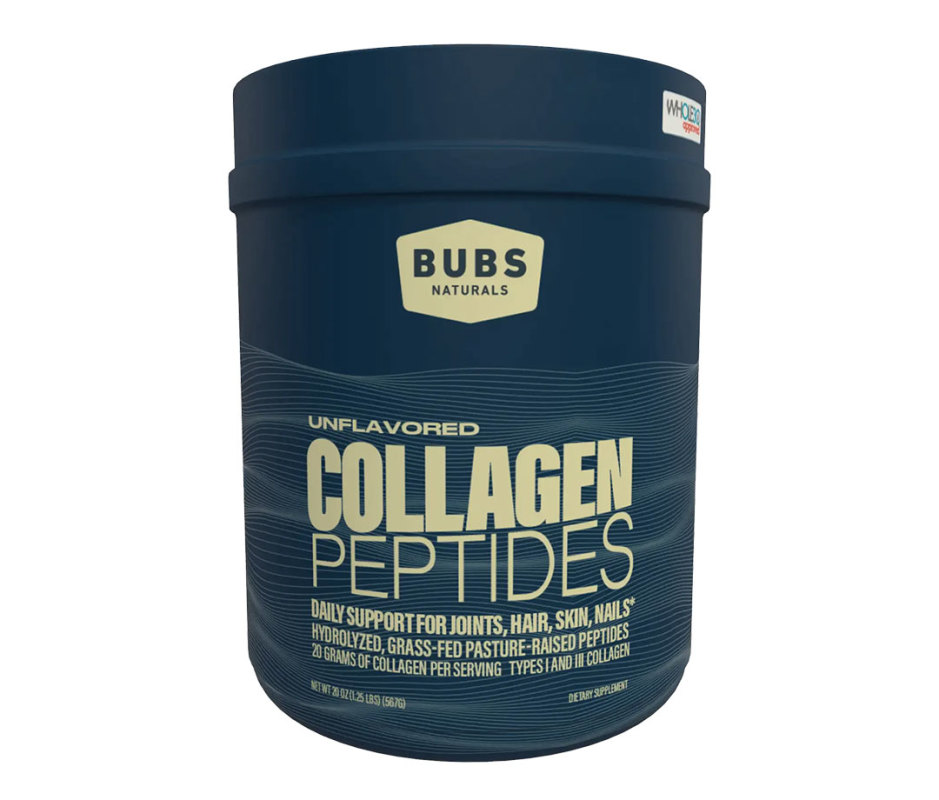
1. Bubs Naturals Collagen Protein
Yawitz calls this collagen peptide supplement a great choice for supplement purists. “One serving provides 20 grams of bovine collagen peptides with no added ingredients or flavors. It’s also tested for safety and quality by NSF Sport,” she says.
[$47, 20 ounces; bubsnaturals.com]
Courtesy Image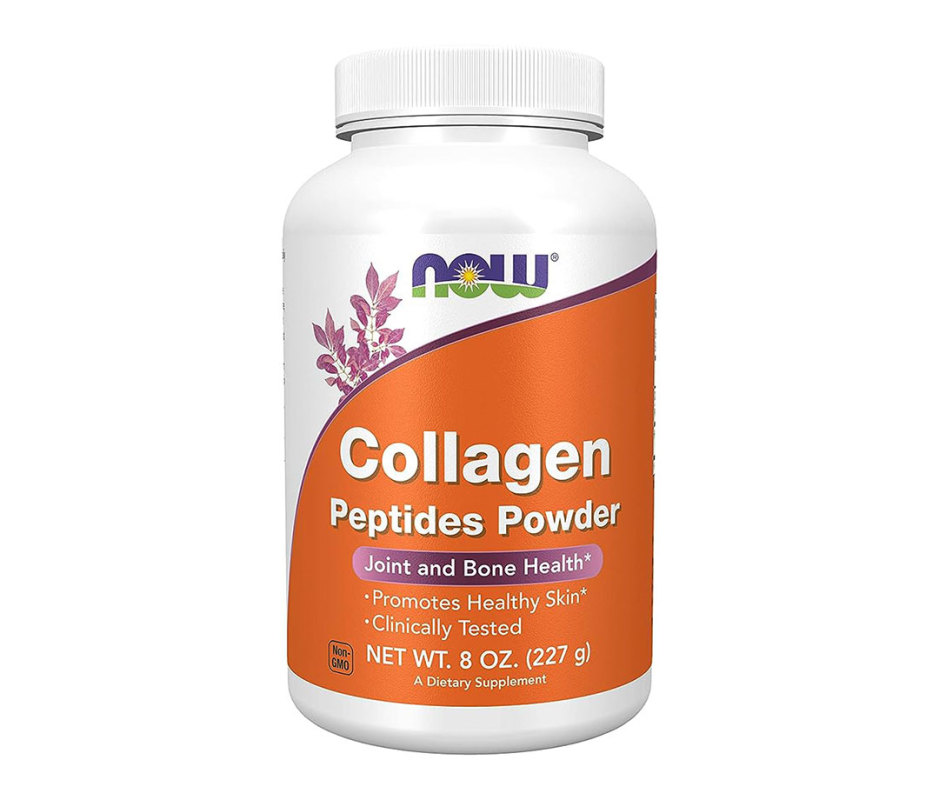
2. NOW Foods Collagen Peptides Powder
Clevenger is a fan of this collagen peptide powder, which “has just one ingredient, and is naturally corn-, dairy-, egg-, and soy-free, as well as non-GMO.” Another win for this product? It’s relatively budget-friendly.
[$23.49, 8 ounces; amazon.com]
Courtesy Image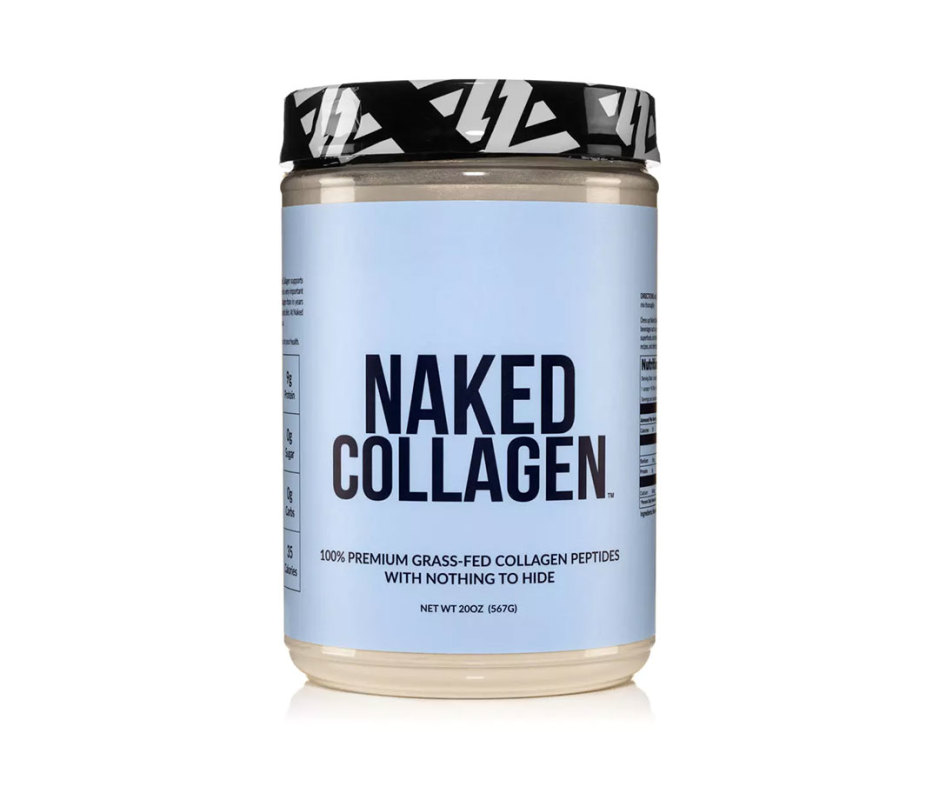
3. Naked Nutrition’s Naked Collagen
Clevenger likes that this brand takes into consideration sourcing, production, and solubility. The collagen is “from pasture-raised cows, is produced in the U.S., and doesn’t clump like other brands typically do,” she says. It’s also gluten-, GMO-, and soy-free, and has just one ingredient.
[$41.99, 20 ounces; amazon.com]
Courtesy Image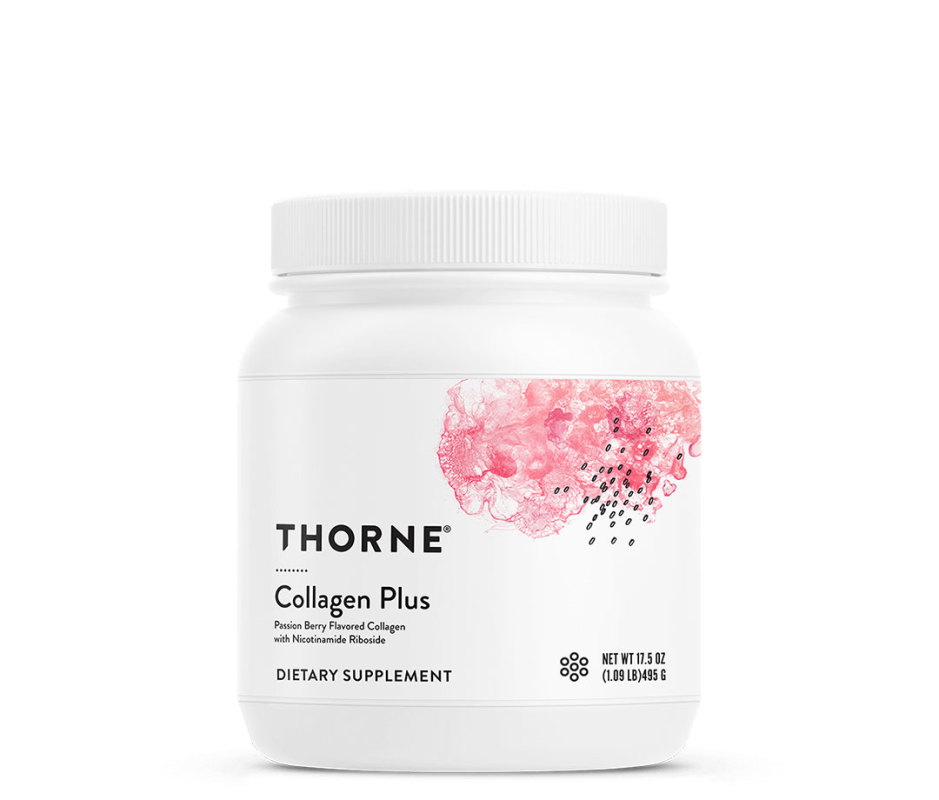
4. Thorne Collagen Plus
This passion berry-flavored collagen is Yawitz’s go-to recommendation for clients looking to restore a youthful glow. “One scoop contains 13 grams of bovine collagen peptides, with added antioxidants and hydration-boosting ceramides,” she says, adding that since collagen supplements can only work with consistent use, the pleasant taste may help you keep up the habit.
[$60, 17.5 ounces; amazon.com]
Courtesy Image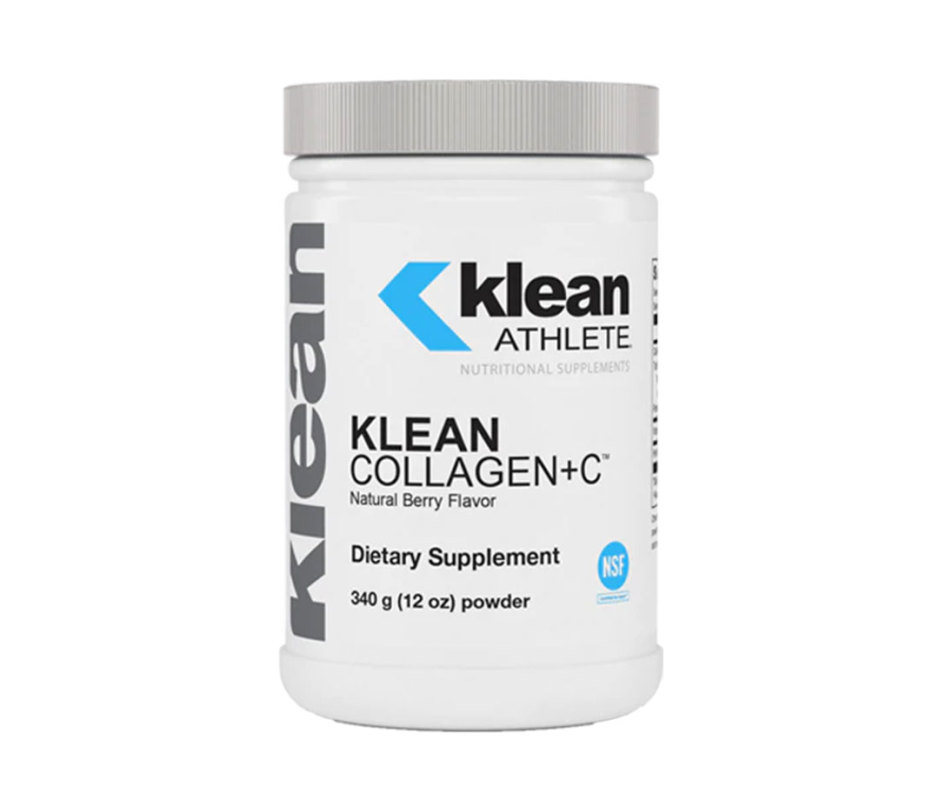
5. Klean Athlete Collagen+C
Another recommendation from Yawitz, this collagen powder “contains 15 grams of bovine collagen per scoop, plus 50mg of vitamin C to help your body make even more collagen,” she says. She also appreciates that it’s available in three flavors (including unflavored) and mixes well into warm or cold liquids.
[$41, 12 ounces; amazon.com]
Collagen Supplement Risks
“Collagen supplements are generally considered safe in doses up to 15 milligrams daily, with very few documented side effects,” Yawitz says, citing a 2022 meta-analysis published in Dermatology Practical & Conceptual. “Some products contain fish and shellfish, so they may not be suitable if you have seafood allergies.”
Getty Images
FAQs About Collagen
Should Men Take Collagen Every Day?
As mentioned above, collagen supplements are best taken daily if you want to reap any potential benefits. “You won’t see any benefit from collagen supplements if you only take them sporadically,” Yawitz says. “You’ll need to take them every day for weeks or even months to know if they’re doing you any good.”
Add unflavored collagen powder to coffee, overnight oats or oatmeal, and smoothies.
Is Collagen Good for Sperm Count?
Is collagen a slam dunk for sperm health? “Despite internet reports to the contrary, there’s no strong scientific evidence that collagen increases sperm quality or quantity,” Yawitz says. If you seek healthy swimmers, maintain a healthy weight, exercise, eat a well-rounded diet, and stick to a sound lifestyle sans smoking and excess alcohol consumption.
Does Collagen Help Male Hair Growth?
Another potential collagen benefit for men is help in hair growth. But it’s important to note that research on collagen benefits for hair is still emerging.
A 2022 single-blind study published in The Journal of Clinical and Aesthetic Dermatology demonstrated that the daily administration of a standardized nutraceutical was effective in improving visible hair growth, volume, thickness, fullness, and coverage with less noticeable hair shedding for men and women of various ethnic backgrounds, Clevenger says.
She adds that the nutraceutical in the research was Nutrafol Men or Women, which comprises curcumin, Sensoril ashwagandha, saw palmetto, tocotrienol/tocopherol complex, and hydrolyzed marine collagen, as well as vitamins, minerals, and other botanical and non-botanical ingredients.
But again, she cautions: This doesn’t mean you should run out to buy collagen supplements and expect your hair to grow overnight.
Bottom line: Collagen falls into the category of supplements that probably won’t hurt you but also may or may not help, Yawitz adds. You can expect some collagen benefits for skin and collagen benefits for hair but it’s not a miracle supplement.
Related: 100 of the Healthiest Foods, Ranked by Protein Content
